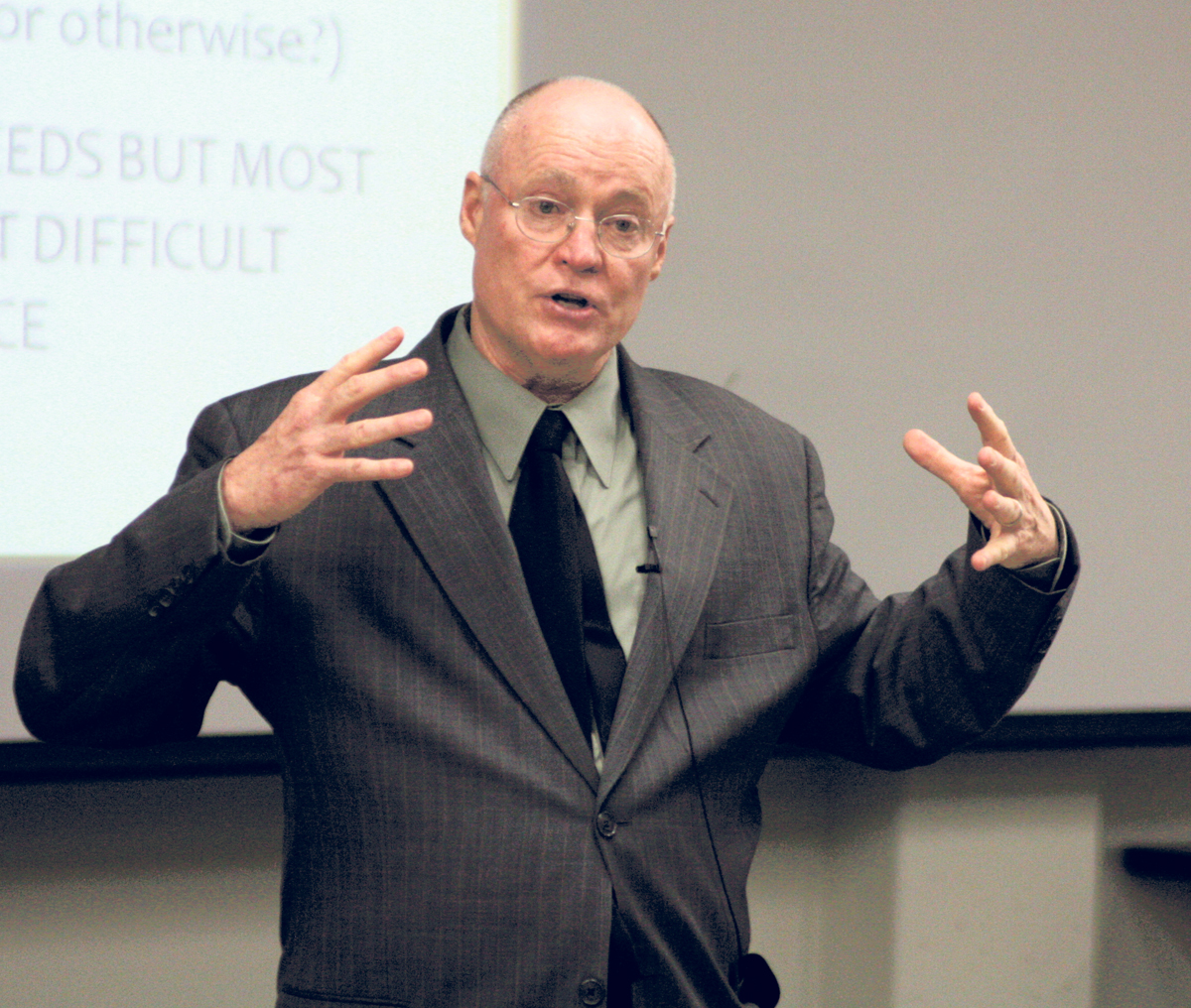NY prof speaks of independence in research, learning
Instructors and students need to take a different approach to research assignments, said Randy Hensley, professor and head of instruction of the Newman Library at Baruch College in New York.
In his presentation to more than 50 USU faculty members on Thursday, Feb. 24, Hensley said, “Students need an environment where they can be independent … it is my experience that when I tell a student that they know something, they disengage from the ‘right answer’ and take risks.”
Hensley said independence is an important element of inquiry-based learning, which was the topic of his lecture, “Inquiry-Based Learning: Re-Thinking ‘Research’ Assignments to Enhance Learning.” His visit to USU was a part of the Provost Series on Instructional Excellence.
In his presentation, Hensley cited an article titled “A Perfect Storm in Undergraduate Education” by Thomas Benton, where Benton said, “The patterns of selection and resource allocation are not driven by educational needs so much as they are the result of competition for the most enjoyable and least difficult four-year experience.”
Hensley said this mentality, along with several other factors, is causing a decline in our higher education system, but one of the remedies is inquiry-based learning.
“The questions matter as much, if not more, than the answers,” Hensley said, “Content comes from the inquiry process.”
He also said that too often the purpose of education and research is finding answers and sources, and because of that students don’t always see their sources as part of a larger pool of knowledge.
Vice Provost Yolanda Niemann said, “Students are consumer oriented, they are looking for answers… some of our students don’t know that this (research) is a process.”
Wendy Holliday, coordinator of library instruction, said: “I get students who ask: ‘I need five sources on X that match this criteria…’ They are not looking for knowledge, they are looking for sources.”
Hensley said research assignments should be evaluated and modified to encourage more inquiry, and instructors shouldn’t assume that students understand the importance of their assignments.
“We need to find ways to get the assignment to link with their experience or an experience they create.” Hensley said.
Holliday said, “Many assignments are designed to find information but not necessarily evaluate it.”
Holliday also said she would like to see more scenario-based assignments being used in classes. One example she gave was rather than having students write a research paper about autism, instructors could have their students research ways to advise parents on how to raise an autistic child.
“My goal is to get faculty members to work with librarians to develop assignments and learning activities in class to get students to actually engage in using information to learn,” Holliday said.
Hensley said inquiry-based assignments should have a more central role in college courses, so everything students learn will point them towards those assignments.
“The ultimate goal is coherence based on inquiry,” Hensley said. “They (students) will get paid to solve problems, our job is to find a pedagogical approach to help prepare them.”
Holliday said she proposed Hensley as guest speaker because of his successful strategies to engage instructors and students in inquiry-based learning and research processes.
“This is not an easy change, but I hope that we can start some conversations so faculty can work more with librarians,” Holliday said.
“Some will be more prone to (inquiry-based learning) than others,” Hensley said. “In some disciplines it will be harder than others, but it will have great value.”
– keaton.reed@aggiemail.usu.edu

